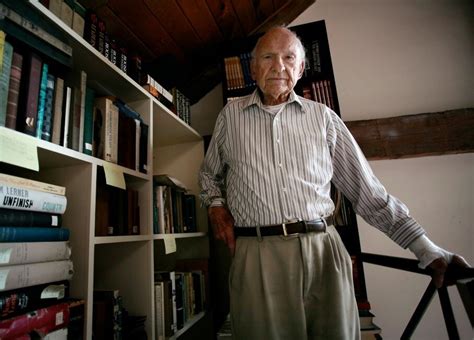A Quote by Joseph C. Rost
Leadership is an influence relationship among leaders and followers who intend real changes that reflect their mutual purposes.
Related Quotes
Not many of us will be leaders; and even those who are leaders must also be followers much of the time. This is the crucial role. Followers judge leaders. Only if the leaders pass that test do they have any impact. The potential followers, if their judgment is poor, have judged themselves. If the leader takes his or her followers to the goal, to great achievements, it is because the followers were capable of that kind of response.
Often, in a given project team or network, one sees leadership roles shifting among various members at various times. Attempts to fit these into traditional views of "leader" and "follower" don't quite work. It's more like Twitter: the "leader" has "followers" - but the "followers" are empowered to alter the relationship unilaterally, and the "leader" must continually earn the consent of the "followers."
Trust is perhaps the most critical single building block underlying effectiveness. Without trust leaders do not have followers. Without trust, leaders are impotent despite great rhetoric or splendid ideas. Trust rests on the belief among followers that the leader is transparent: What you see is what there is. Trust means followers believe there is no duplicity; no manipulation just to satisfy the leader's ego. Very simply: The effective leader is transparent; that's why that person is trusted.
When you coach and teach leadership, most people think about them. It's like you're the leader and how do you influence them. Clearly, leaders do take their followers, their flock, their enterprise, their business - whatever - hopefully to a better place. But I think the foundation of what makes really great leaders is they lead themselves, and they're conscious about knowing themselves and coaching and leading themselves in a very profound way. The simplest of us talk to ourselves. The question is, "Do we really lead ourselves?"































